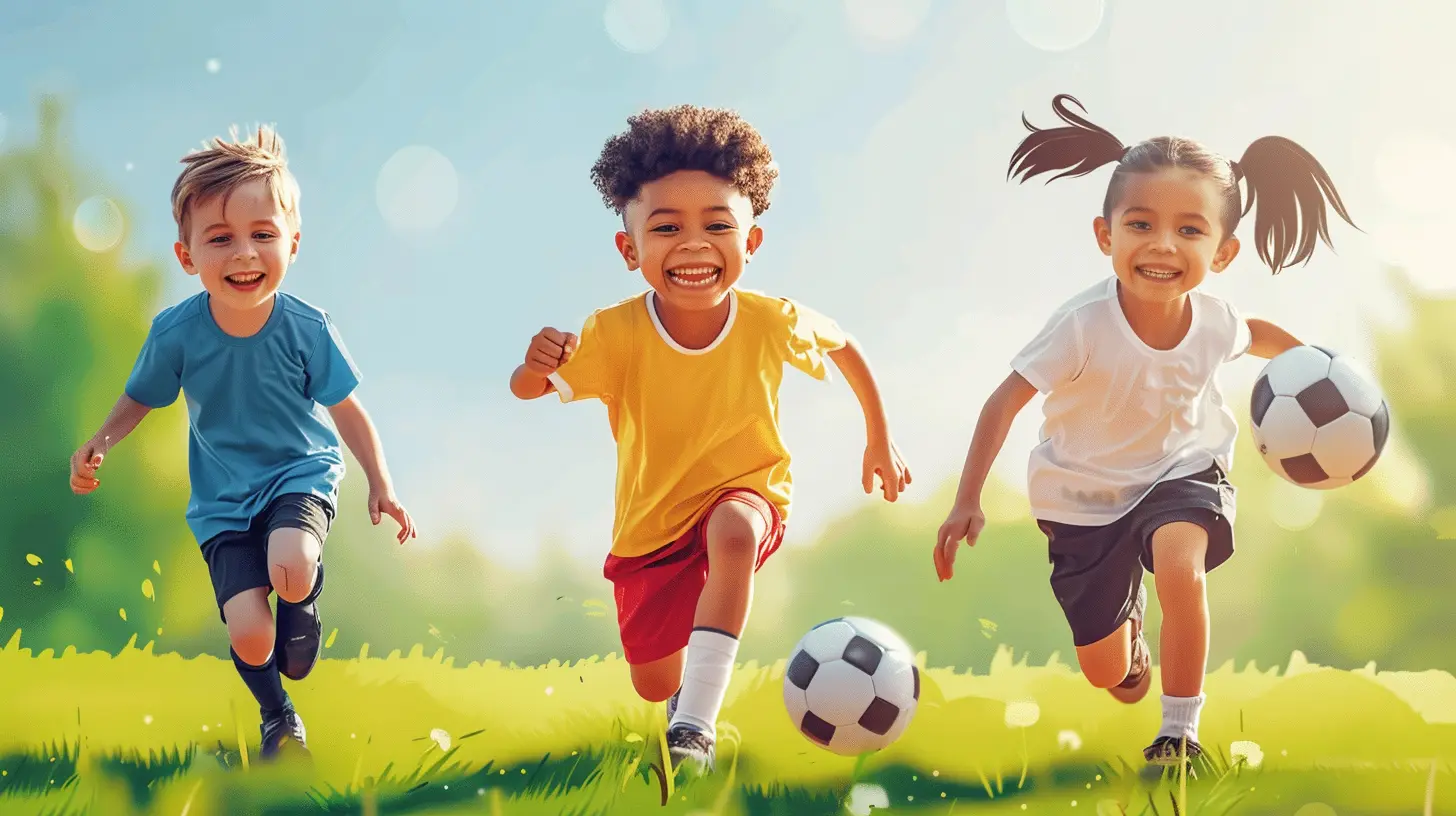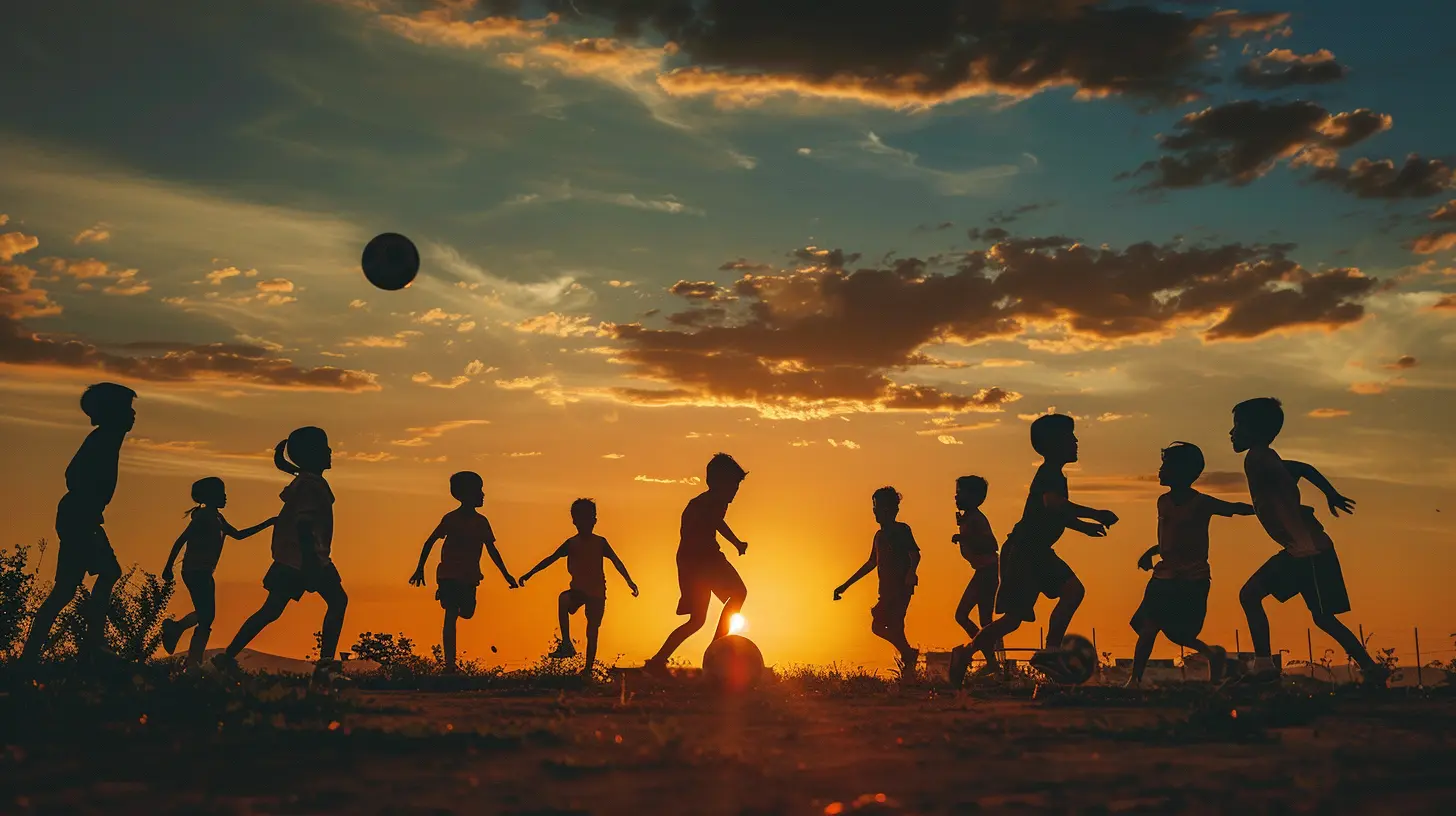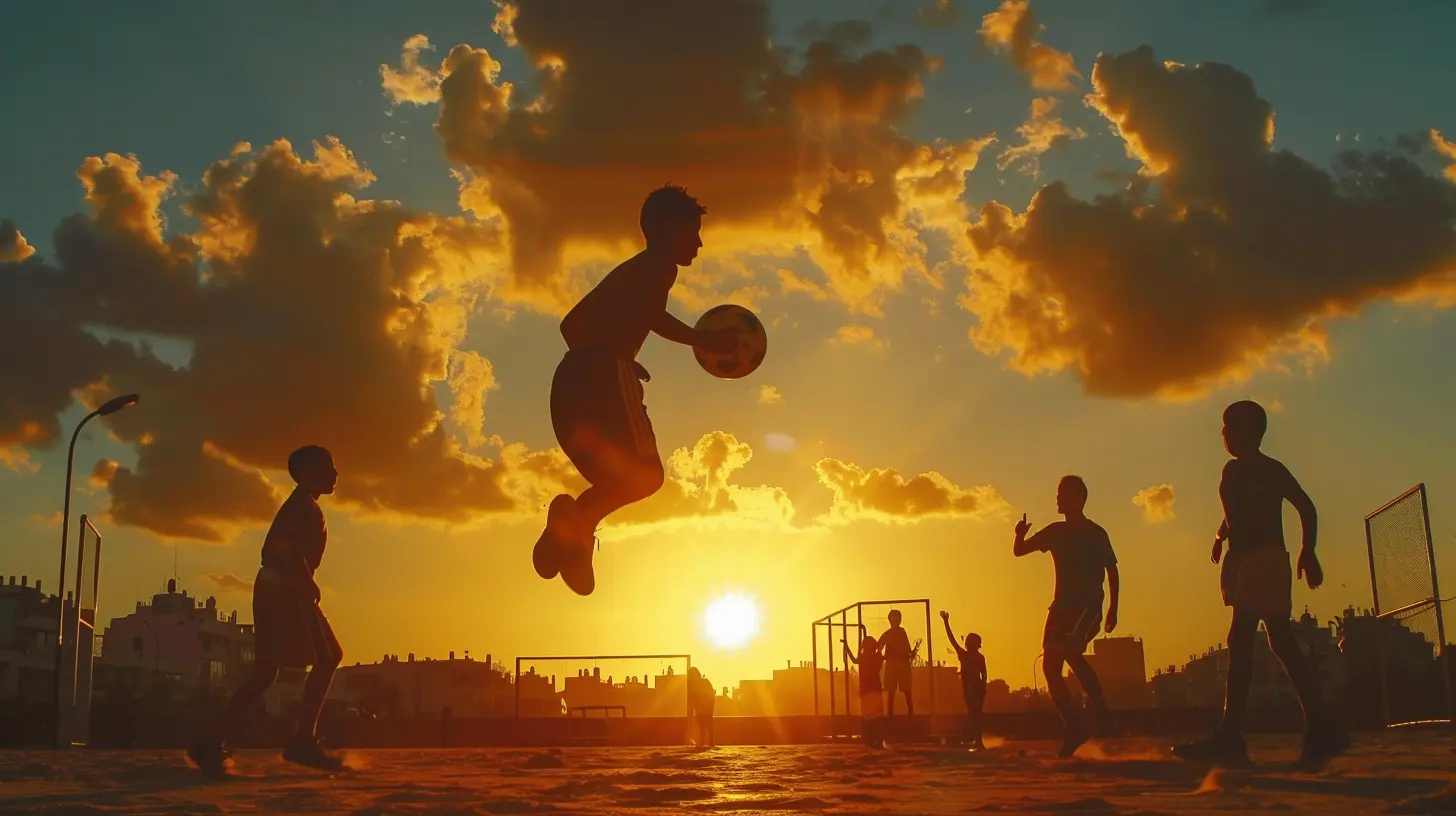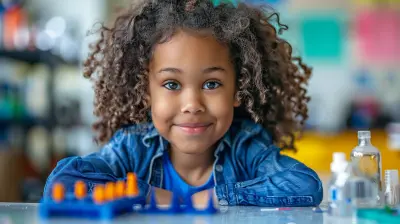Benefits of Team Sports in Physical Education for Social Skills
13 June 2025
When we think about physical education (PE), we often picture running laps, practicing drills, or playing games to stay fit and active. But one of the most underrated aspects of PE, specifically when it comes to team sports, is the significant boost it provides to social skills. Beyond just getting the heart rate up, team sports help kids (and even adults) learn to work together, communicate, and build relationships. It’s like a secret weapon that schools use to teach students life lessons that go far beyond the playing field.
In this article, we're going to dive deep into how team sports in PE classes can benefit social skills. Whether you're a student, parent, educator, or just curious, you might be surprised by how much impact something as simple as a game of soccer can have on someone's ability to thrive socially.

The Importance of Social Skills in Today's World
Before we delve into the impact of team sports, let’s take a second to think about why social skills are so important in today’s world. We live in an era where technology often replaces face-to-face interactions. Social media, texting, and emails dominate our communication. While these tools are convenient, they sometimes rob us of the essential human connections that come from in-person interactions.Developing strong social skills—like teamwork, empathy, problem-solving, and communication—can make or break a person’s success in both their personal and professional lives. Whether you're at school, at work, or in any social setting, being able to connect with others is crucial. And guess what? Team sports are a perfect way to build these skills in a fun, engaging environment.

1. Teamwork: Learning to Collaborate
Why Teamwork Matters
One of the most obvious and significant benefits of team sports is learning how to work as a part of a team. In almost every sport, you can't win on your own. You need your teammates to succeed, whether you’re passing the ball in basketball or coordinating a play in football. This constant need for collaboration teaches students to rely on others, understand their roles, and work together toward a common goal.Teamwork doesn’t just stay on the field. The ability to collaborate is a life skill that transfers to many areas, from group projects in school to team-based work environments. The better you are at working with others, the more successful you'll likely be in both your personal and professional life.
Team Sports Encourage Cooperation
In team sports, each player has a role. Whether you're a forward in soccer or a setter in volleyball, your specific job contributes to the team’s overall success. Learning how to cooperate and communicate effectively with others is essential to making sure the game runs smoothly. And when students learn to do this in sports, they’re more likely to apply it in other areas of life, like at school or when forming friendships.Example: Think about a soccer team. If one player decides to hog the ball all the time, the team’s chances of winning significantly drop. It’s only through cooperation—passing the ball, trusting teammates, and sticking to strategies—that victory becomes possible. This lesson resonates far beyond the soccer field. It's a reminder that individual success often comes from collective effort.

2. Communication Skills: More Than Just Talking
How Sports Promote Communication
Communication is key in any team sport. Whether it’s shouting instructions on the field, giving feedback during a time-out, or even offering encouragement, players need to express themselves clearly and listen to their teammates. Sports provide a dynamic environment where communication happens quickly and often under pressure, which helps students develop the ability to express themselves concisely and effectively.Listening and Understanding
But communication isn’t just about talking—it's about listening, too. In sports, players must listen to their coaches, understand the game plan, and be aware of their teammates’ needs. This active listening skill is critical in everyday life as well. Whether it's in the classroom, in a workplace, or in personal relationships, being able to listen well and respond appropriately is invaluable.Example: During a basketball game, if the point guard doesn’t communicate with the rest of the team, the entire play can fall apart. Similarly, in life, if you're not paying attention to what others are saying or how they feel, misunderstandings can occur, leading to unnecessary problems.

3. Problem-Solving: Thinking on Your Feet
Quick Decision-Making in Sports
Ever had to make a split-second decision during a game? Maybe you’ve had to decide whether to shoot or pass the ball with only seconds left on the clock. Team sports foster an environment where players must think fast, assess the situation, and make decisions in real-time. This type of quick problem-solving teaches students how to handle challenges under pressure, a skill that’s equally useful in real-world situations.Sports Build Resilience
One of the best aspects of team sports is the opportunity to fail, learn, and try again. Not every game will be won, and not every play will go as planned. But through these experiences, students learn resilience. They learn that setbacks are part of the process and that problem-solving and persistence are key to overcoming obstacles.Example: Imagine you're playing volleyball, and the opposing team has a star player who keeps spiking the ball. You and your team quickly adjust your strategy, placing your best blockers in front of them. While you may not stop every spike, the ability to adapt and solve problems on the fly is invaluable, both in sports and in life.
4. Leadership: Stepping Up When It Counts
Sports Cultivate Leaders
Team sports offer natural opportunities for leadership. Whether it’s being the team captain or just encouraging teammates during tough moments, players often have to step up and take charge. Leadership doesn’t always mean being the loudest voice—it can mean leading by example, supporting others, or helping the team stay focused.For students who may not always see themselves as leaders, sports can offer a safe way to develop these skills. Over time, these leadership abilities can carry over into other areas of life, whether it's taking the lead in a group project or managing responsibilities at work.
Confidence and Empowerment
Being part of a team and contributing to its success can also boost a student’s confidence. When students see that their efforts make a difference, they feel empowered. This sense of self-worth and belief in one’s abilities can be life-changing, especially for young people still figuring out who they are.Example: Think about a football game where the quarterback throws a perfect pass, but it’s the receiver who makes the jaw-dropping catch. Both players had to lead in their own way, trusting their skills and each other. Leadership in sports isn’t about ego—it’s about empowering everyone on the team to be their best.
5. Empathy and Emotional Intelligence: Understanding Others
Building Strong Bonds
Team sports create a unique environment where students interact with a diverse group of people. They’re not just learning to work with others; they’re learning to understand them. Sports often put players in situations where they have to support one another, celebrate wins, and console each other after losses. This builds empathy—understanding and sharing the feelings of others.Emotional Regulation
Sports can be intense. There are moments of high pressure, victory, and defeat. How students handle these emotions, both their own and those of their teammates, is a key aspect of emotional intelligence. Being able to regulate emotions, stay calm under pressure, and support teammates emotionally all contribute to greater social awareness and interpersonal skills.Example: After losing a big game, a team might console each other, sharing in the disappointment but also offering words of encouragement. This teaches students how to navigate emotional highs and lows, an essential part of developing emotional intelligence.
6. Conflict Resolution: Navigating Disagreements
Sports Teach Conflict Management
Let’s face it—team sports aren't always smooth sailing. There are disagreements over strategy, performance, and sometimes even personality clashes. But these conflicts are an opportunity in disguise. Through sports, students learn how to address issues, negotiate solutions, and resolve conflicts in a way that benefits the team as a whole. These are crucial skills that they’ll use throughout their lives.Fostering Respect
Sports also teach respect. Players must respect their teammates, their opponents, and the rules of the game. Even when conflicts arise, maintaining respect is key to resolving issues productively. This helps students learn how to manage disagreements with maturity and grace, both on and off the field.Example: Imagine two players on a soccer team disagreeing about who should take a penalty kick. By discussing it openly and coming to a decision that benefits the team, they learn the art of compromise—a skill that will serve them well in life.
Conclusion: More Than Just a Game
While we often think of team sports as a way to stay fit and healthy, the social benefits can’t be overstated. From teamwork and communication to leadership and empathy, team sports in physical education play a crucial role in shaping well-rounded, socially adept individuals. The lessons learned on the field are lessons for life.So, the next time you see kids playing a game of basketball or soccer, remember: they're not just playing a sport. They’re learning to navigate the complexities of human interaction, one pass, one play, and one goal at a time. And that’s a win for everyone.
all images in this post were generated using AI tools
Category:
Physical EducationAuthor:

Olivia Lewis
Discussion
rate this article
3 comments
Aelith Jordan
Participating in team sports fosters essential social skills such as communication, cooperation, and conflict resolution. These experiences not only enhance physical education but also prepare students for future teamwork, promoting lifelong relationships and a deeper understanding of community dynamics.
June 17, 2025 at 12:08 PM

Olivia Lewis
Thank you for highlighting the significant social skills gained through team sports. Indeed, these experiences are vital for personal growth and community engagement.
Elin Harper
Team sports foster essential social skills beautifully!
June 14, 2025 at 7:30 AM

Olivia Lewis
Thank you! Absolutely, team sports provide a unique platform for developing vital communication, teamwork, and leadership skills.
Brooks Hensley
This article beautifully highlights the profound impact team sports have on developing essential social skills in students. Through collaboration and communication, young athletes not only grow physically but also learn invaluable life lessons that shape their futures.
June 13, 2025 at 4:54 AM

Olivia Lewis
Thank you for your insightful comment! I'm glad you found the article highlights the valuable life lessons that team sports provide in developing social skills.



